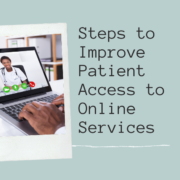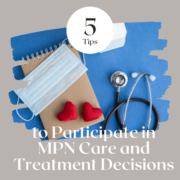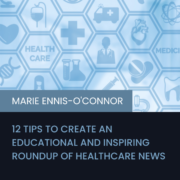Health Fraud Scam – Be Aware and Careful
Avoiding health care scams can be as simple as not signing blank forms, not providing personal information to unknown parties, and not agreeing to schemes to make money by falsifying paperwork.
Unfortunately, there is a scammer for every medical condition or concern. People who are suffering from conditions like cancer and its harsh treatment regimen may be confused and belittled by persistent phone calls or emails but there are ways to fight back.
How it Works
Healthcare fraud is a way of billing health insurers or government programs like Medicaid out of money through a system of fake, unnecessary, or inflated bills. An unscrupulous doctor may offer you cash in exchange for your signature on a permission form that will allow him to bill for fake services.
Others, including people who show up at retirement homes or senior activity centers, may offer to provide a medical “test” of some kind, whether eyesight or hearing, etc. The individual then bills your insurer or Medicaid an exorbitant amount for the useless service – or gets added to your monthly regimen of providers despite the service or monitoring not being necessary. A new wrinkle in this phishing scam are people who offer to provide a “genetic test” using a cheek swab at a healthcare fair, senior center, or other forum, and who have you fill out medical insurance information at the same time. They will then try to bill your insurance for the unnecessary “test” and may pursue you for the cost if your insurance refuses to pay.
Medical equipment, from oxygen tanks to catheters to shower chairs, may be provided by scammers who bill your healthcare insurance despite the item being either unnecessary or absurdly high-price. If you accept medical equipment, be sure it’s recommended by your regular doctor, that it’s necessary, and that you shop around for the best price rather than just signing an authorization that allows the provider to bill any amount.
Home health aides may be assigned to your home and billed to your insurance but never show up to provide a service. Keep an eye on your billing statements to be sure this sort of fraud is not showing up on your account, and call your provider if you see anything suspicious.
How to Avoid Healthcare Scams
To protect yourself from such scams use tools at your disposal, such as reverse email lookup, confirm website addresses and compare them to actual government websites you find on your own, or call your health insurance provider if you’re suspicious about a bill, a caller, or an unwanted package of medical equipment. Here are other tips to follow:
- Never sign a blank healthcare or medical form that authorizes payment in exchange for a treatment (such as that described above) that was not planned and authorized by your usual medical team.
- Do not accept unnecessary equipment that you did not order and do not use, like braces, apnea devices, or orthotics.
- Watch your billing statements for any unauthorized charges, and report any that are unusual.
- If you think a doctor is doing unnecessary tests or surgeries, get a second opinion. This can be a way to bill for services that you don’t need.
- Check your billing statements to ensure that the procedures noted are exactly what you received because some scammers are able to change the name of a procedure, such as a biopsy, to collect more money.
- Providers may also try to “unbundle” procedures and charge more for each step rather than a “package” price. Watch for this more expensive billing practice on your statements.
Related issues
Healthcare can be a confusing part of life to navigate, as many of us have multiple doctors, copayments, coverage issues, deductibles, drug coverage, and more to learn about. Unfortunately there is a scammer looking to work every angle and take advantage of anyone, so beware of the following healthcare related scams:
- Anyone who calls to tell you it’s necessary to buy a new health insurance card or pay over the phone for a new Medicare card immediately and wants your credit card and/or social security number and personal information (you can call 1-800-MEDICARE to check the person’s identity and validity of their call before providing any information);
- Confusing medical discount plans with medical insurance – discount plans are “club” like groups that claim to offer discounts on doctor visits, drugs, and medical devices but they are not the same as insurance;
- If you receive Medicare you do not need additional insurance provided through the Healthcare Marketplace, and anyone who wants to charge you a fee for helping to make a decision about coverage offered through the Healthcare Marketplace is a scammer and should not be given a credit card number, bank transfer, or paid with gift cards, and
- Anyone who claims to be “from the government” and threatens you with a financial penalty for not being up to date on insurance is a scammer and should not be told any personal information such as social security number (you can call the Federal Trade Commission at 1-877-382-4357 to ask about or report fraudulent schemes).
Ben is the Director of Web Operations at InfoTracer, who takes a wide view from the whole system. He authors guides on the entire security posture, both physical and cyber. Enjoys sharing the best practices and does it the right way!










